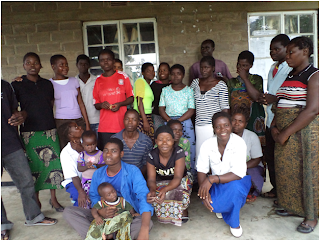By Lino Limbithu and Elias Banda
Cases of early marriages have not spared Kawinga village communities in Machinga District where younger girls at ages between 13 and 15 enter into marriages after dropping from school. A training in advocacy organized by ADRA Malawi through the Action for Social Change Program involving community groups triggered discussions into the matter and community members sought a lasting solution. And subsequently, a task force was formed to take the matter further and the Mgwilizano coalition against early marriages was formed after consultations with chiefs and the Traditional Authority Kawinga.
During a meeting that was attended by interested groups including teachers, police victim support units and community members, a consensus was reached giving the Mgwilizano coalition the mandate to enforce by-laws against early marriages. The laws were as follows:
1. Marriage involving a young girl or boy should be dissolved immediately and matter to be referred to traditional counselors.
2. Parents permitting their children to enter into marriages at unacceptable age would pay a penalty of K5000.00 (about $14) each.
3. Any marriage arrangement to be approved by the village head.
4. Any person found marrying a younger girl would pay K10, 000 (about $28) and the marriages would be dissolved immediately.
5. A teacher found impregnating or marrying a school girl would pay K50, 000 (about $140)
The Mgwilizano coalition was also given responsibility to facilitate community sensitization on the child care, protection and justice Act passed by Parliament in 2010. The Act, which outlines responsibilities and roles of parents on how to raise their children in their respective homes, addresses issues of child abduction, trafficking, harmful cultural practices, and it recognizes principles that are in the best interest of children.
Nevertheless section 22 subsection 7 of the Malawi constitution allows persons between the age of fifteen and eighteen years to get married as long as they obtain consent from their parents and guardian and human rights activists have argued that this section of the constitution is a loophole for rampart early marriages in Malawi and are advocating for the amendment of the section.
Meanwhile, through the Mgwilizano Coalition, three girls aged between 13 and 15 who have been reclaimed from marriages are now reintegrated at Nanyumbu Primary School.
The Action for Social Change Program is being supported by Denmark to bring about individual and society change in Machinag, Mulanje, Mzuzu and Lilongwe.
































